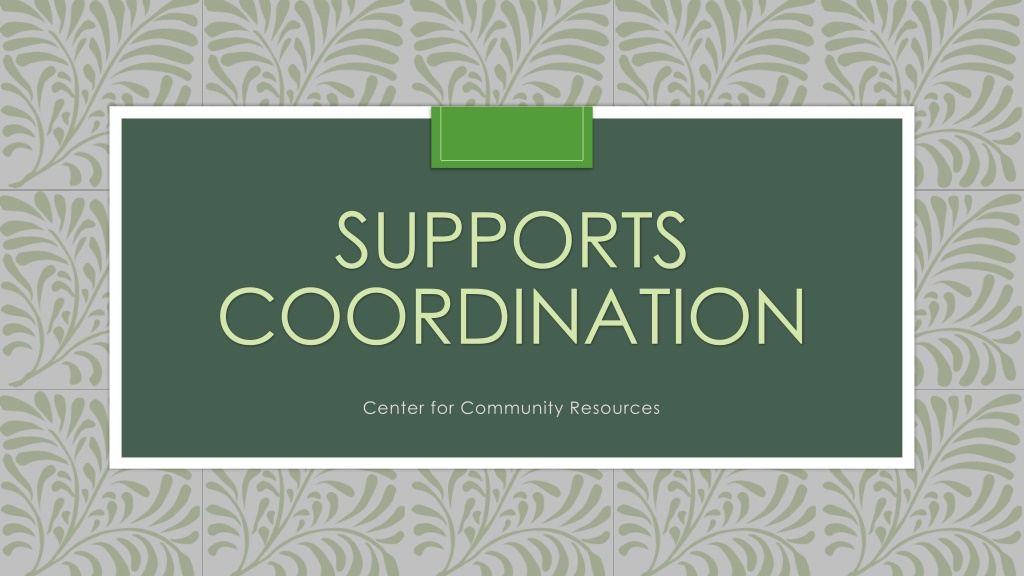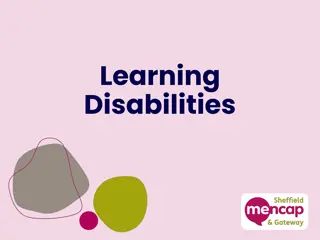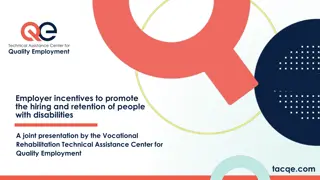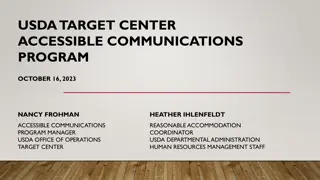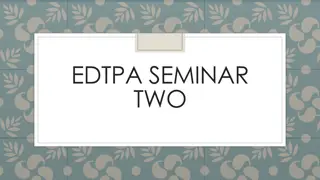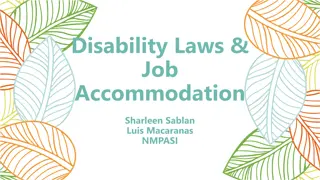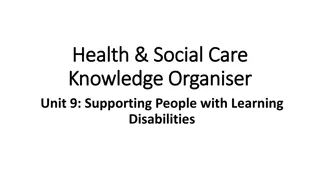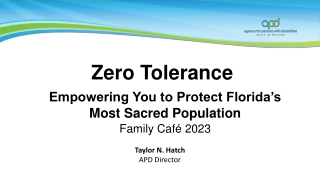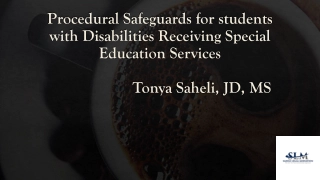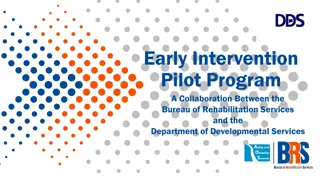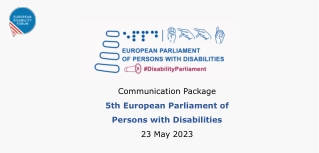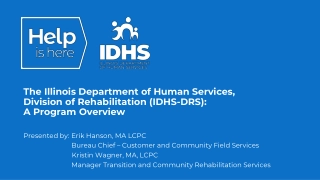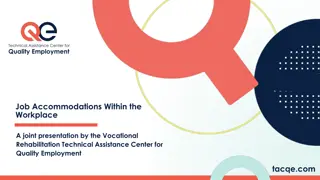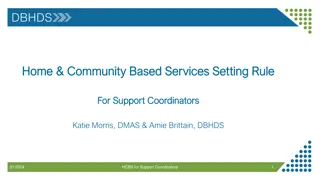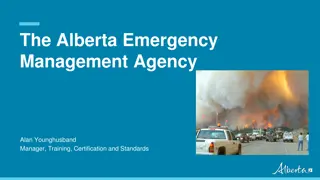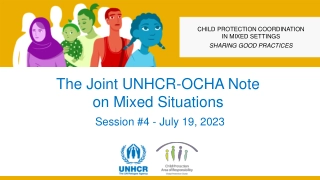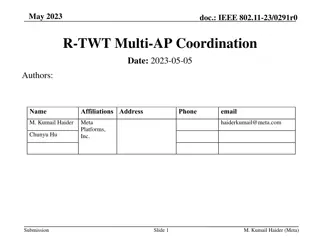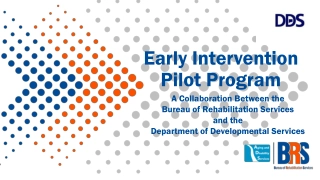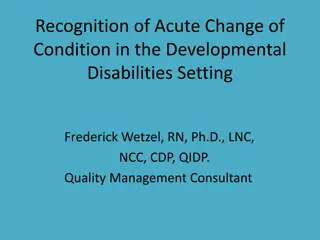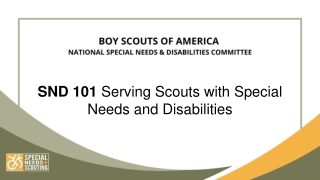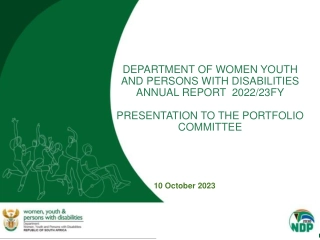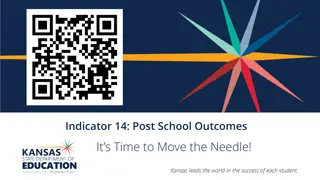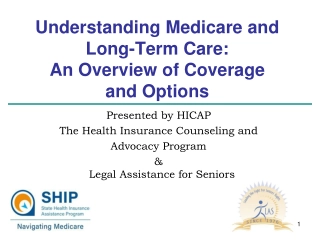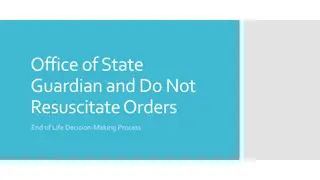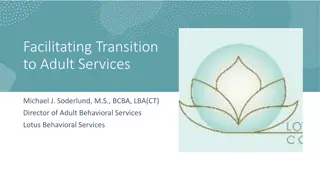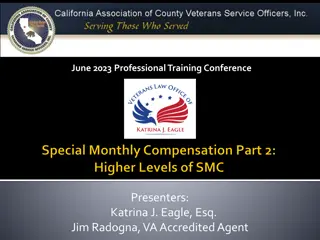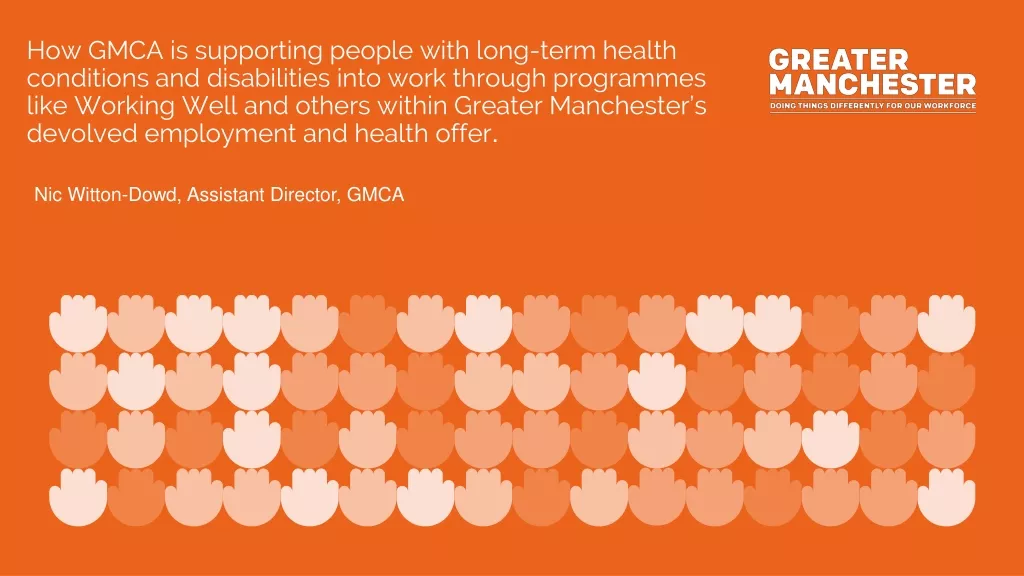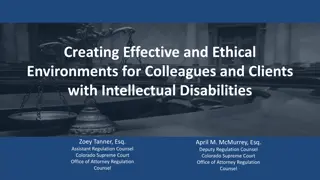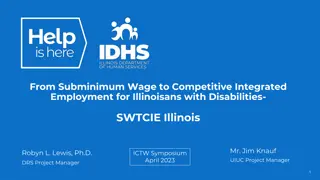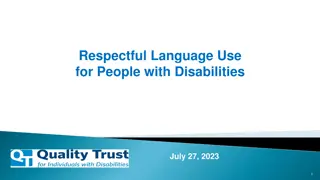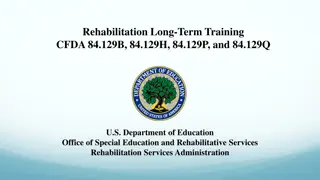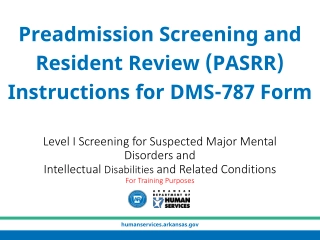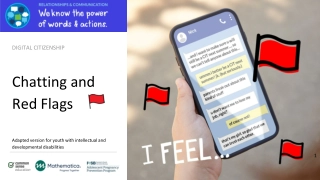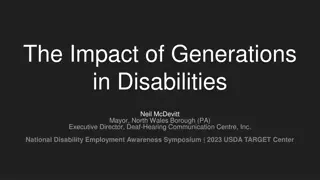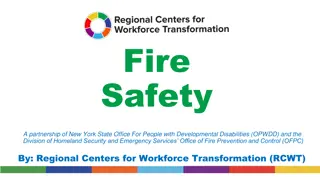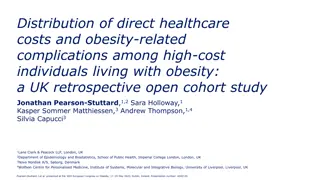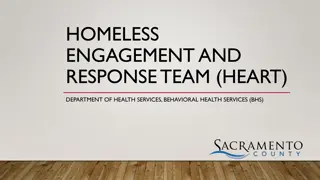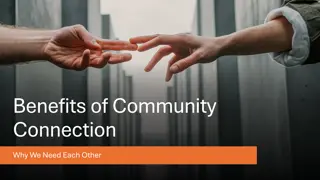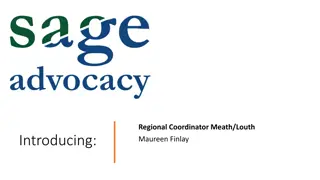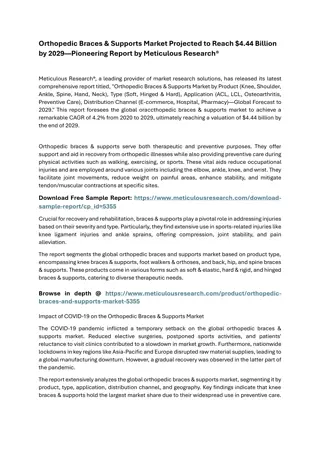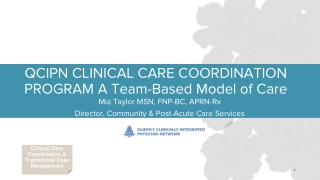Understanding Supports Coordination for Individuals with Disabilities
Supports Coordination is a vital case-management service for individuals with intellectual disabilities, autism spectrum disorder, and complex medical conditions. It involves locating, coordinating, and monitoring services to support individuals and their families. A Supports Coordinator helps with planning, advocacy, and support, linking individuals to community resources, activities, and services. This service is essential for planning for the future, advocating for funding, and accessing disability-specific services.
Understanding Supports Coordination for Individuals with Disabilities
PowerPoint presentation about 'Understanding Supports Coordination for Individuals with Disabilities'. This presentation describes the topic on Supports Coordination is a vital case-management service for individuals with intellectual disabilities, autism spectrum disorder, and complex medical conditions. It involves locating, coordinating, and monitoring services to support individuals and their families. A Supports Coordinator helps with planning, advocacy, and support, linking individuals to community resources, activities, and services. This service is essential for planning for the future, advocating for funding, and accessing disability-specific services.. Download this presentation absolutely free.
Presentation Transcript
SUPPORTS COORDINATION Center for Community Resources
About Me! Born and raised in Pendleton County, WV. Got my Bachelor s and Master s Degrees in Special Education at WVU. Moved to Butler County in 2017 with my boyfriend and our dog. Started as a support coordinator at CCR in July of 2018. Took my position as supervisor in November of 2021 and moved to Fayette County in May of this year.
Overview What a Supports Coordinator (SC) is and what do they do Why you should have a supports coordinator When a person should have supports coordination services involved Common terminology you will hear when working with a supports coordinator What a waiver is and is not How to determine eligibility for supports coordination services Who to contact to start supports coordination services
What is Supports Coordination? Supports Coordination is a case-management service for individuals with an intellectual disability, autism spectrum disorder, and/or complex medical condition(s). Supports Coordination is a critical service that involves the primary functions of locating, coordinating, and monitoring services and supports for individuals and their families.
Why do I need a Supports Coordinator? PLANNING! ADVOCACY! SUPPORT! Supports Coordinators can assist in planning for the future, including post-secondary goals. *Did you know that transition planning can start as early as 14-years-old? So should supports coordination services! Supports Coordinators advocate for the need for funding to support needs in the home and community Supports Coordinators link you to community activities, events and resources You must be registered with the county developmental disabilities program to access specific disability services such as residential habilitation (group home) and community participation supports (day program).
Locating Locating services and supports consists of assistance to the individual and their family in linking, arranging, and obtaining services. This may include, but is not limited to, locating resources in the community, employment opportunities, medical supports, social events/opportunities, and other various needed supports. Examples: Assist the participant and his or her family in identifying and choosing willing and qualified providers; Make referrals to providers (unpaid or paid) with information and follow-up support; Participate in the ODP standardized needs assessment process to develop the service plan, including any necessary service plan updates.
Coordinating Coordinating consists of development and ongoing management of the service plan in cooperation with the participant, his or her family, and members of the service plan (ISP) team. Examples: Review and update the participant s service plan annually; Revise the participant s service plan when there is a change in need or at the request of the participant and his or her family; Use information from the Life Course framework that helps lead to the good life that the participant and his or her family envision and assist with the development of the participant s service plan, including any updates to the service plan.
Monitoring Monitoring consists of ongoing contact with the participant and his or her family, to ensure services are implemented as per the service plan. Monitoring is intended to ensure that participants and his or her family are getting the support they need, when they need them, to see measurable improvements in their lives. Examples: Visit with the participant and his or her family as well as providers for monitoring of health and welfare and service plan implementation; Respond to and assess emergency situations and incidents and assure that appropriate actions are taken to protect the health and welfare of participants; Review participant progress on outcomes and initiate service plan team discussions or meetings when services are not achieving desired outcomes.
SC Individual Monitoring SC monitors authorized services to ensure individuals health and safety and to verify the individual is receiving the type, scope, amount, duration and frequency of services as documented in the approved ISP. Consolidated and Community Living waiver Face to face monitoring every other month, at minimum One at home, one at day program and one at another location in a 6-month period. PFDS Waiver Face to face monitoring every three calendar months, at minimum One at home every 6 months, one at day program every year and one at another location SC Only/Base Face to face monitoring at least every 6 months; no location requirements
Individual Support Plan (ISP) The ISP includes: thinking about relationships that are important, activities that are enjoyable and important, what kind of job they would like; whether there are any health and safety risks that must be planned for, what the immediate needs are as well as the needs they anticipate for the future, and what types of services would assist the person and family in achieving the quality of life they hope to have
PUNS The Prioritization of Urgency of Need for Services (PUNS) is a tool used to manage the waiting list. PUNS identifies the types of services and supports the individual is currently receiving and services that are needed. SCs facilitate conversation with the individual and family to accurately identify needs and estimated timelines. Data collected enables SCs and County Programs to target resources and funding but also helps ODP plan for the system years in advance.
PUNS Urgency of Need Emergency Need within 6 months Critical Need anticipated need to occur 6 months to 2 years from date of review Planning for Need anticipated need is more than 2 years away but less than 5 years ** It is important to note that just because someone is on the Emergency Need for services, it does NOT guarantee them a waiver.
How do I get a waiver? A select number of waivers are provided to each county by ODP (Office of Developmental Programs) and once they are given out, they are gone. A waiver only becomes available if: - a person moves out of the state - a person passes away - there is a specific initiative that offers additional waiver slots (ie. Graduates) Unfortunately, there is no timeline on when someone will be selected to receive a waiver.
Funding Options Base Funding Base Funding comes from State and County dollars and is contingent of the Governors budget. ** Individuals diagnosed with ASD without the presence of an intellectual disability are not eligible for base funds ** Currently NO base funds within Washington County ARPA funds are available for these cases Waiver Funding Consolidated wavier no cap limit Community Living waiver - $85,000 limit Person/Family Directed Supports waiver (PFDS) $41,000 or up to $56,000 with employment services
Waiver Services Assistive Technology Behavioral Support Community Participation Support Companion Family/Caregiver Training and Support Home Accessibility Adaptations Homemaker/Chore Housing Transition and Tenancy Sustaining Services In-Home and Community Support Life Sharing *Consolidated and Community Living only Participant Directed Goods and Services *Community Living and PFDS only Residential Habilitation *Consolidated only Respite Shift Nursing Small Group Employment Specialized Supplies Supported Employment Supported Living * Consolidated and Community Living only Supports Broker Supports Coordination Therapy Transportation Vehicle Accessibility Adaptations
How do you get a Supports Coordinator? Each County has an intake department or contracted agency who determines eligibility for services in the Intellectual Disability/Autism System. Once eligibility is determined the intake department will offer the individual and/or family choice of a Supports Coordination Organization (SCO). Individuals and/or families can call the options of SCOs and ask questions about who could be assigned to their case and request any preferences such as male, female, non-smoker, etc. Once a selection is made the intake department makes the referral to the SCO. Each SCO has internal timeframes to contact the individual/family. CCR will make contact within 5 days and schedule the initial ISP meeting.
Intake Requirements Referral Form Psychological Evaluation and/or Current IEP & RR: IQ of 70 or below and/or Autism diagnosis Signed by school psychologist Completed within the last 2 years Statement of : Results are valid and consistent with NAME s functional limitations ABAS/Vineland Assessment showing 3 or more deficits in the 6 major life skills MA 51/Medical Evaluation by PCP/licensed professional Documents primary diagnosis or Intellectual Disability or Autism ICF/ID Intellectual Disability ; ICF/ORC Autism Diagnosis must have occurred prior to age 22 Copies of birth certificate, Social Security card, Medical Assistance card, and ID (if 18 or older)
Contact Information * Michelle Gindlesperger Washington County Intake Coordinator (724) 228-6833 Center for Community Resources: SC Supervisor Caitlyn Thompson cthompson@ccrinfo.org (724) 996-3500 Senior Program Manager Christina Sheirer csheirer@ccrinfo.org (412) 485-8175 Supports Coordinators Brian Buckman bbuckman@ccrinfo.org (412) 660-3299 Jamie Smilo jsmilo@ccrinfo.org (412) 523-0881 Meghan Brownlee mbrownlee@ccrinfo.org (724) 602-6637 Sydney Glover sglover@ccrinfo.org (412) 997-2096 Ruthann Wigfield rwigfield@ccrinfo.org (724) 814-1575 Tara Swartzlander tswartzlander@ccrinfo.org (724) 996-1436
Resources Office of Developmental Programs Bulletin 00-22-05: ISP Manual Description of ISP process, timelines, waiver services, etc. Office of Developmental Programs Bulletin 00-19-03: Prioritization of Urgency of Need for Services (PUNS) Manual CCR Information and Referral Line: 844-360-4372 MyODP ODP-Services-Overview.pdf (paautism.org) Medicaid Waivers for Individuals with Autism PAAutism.org, an ASERT Autism Resource Guide
